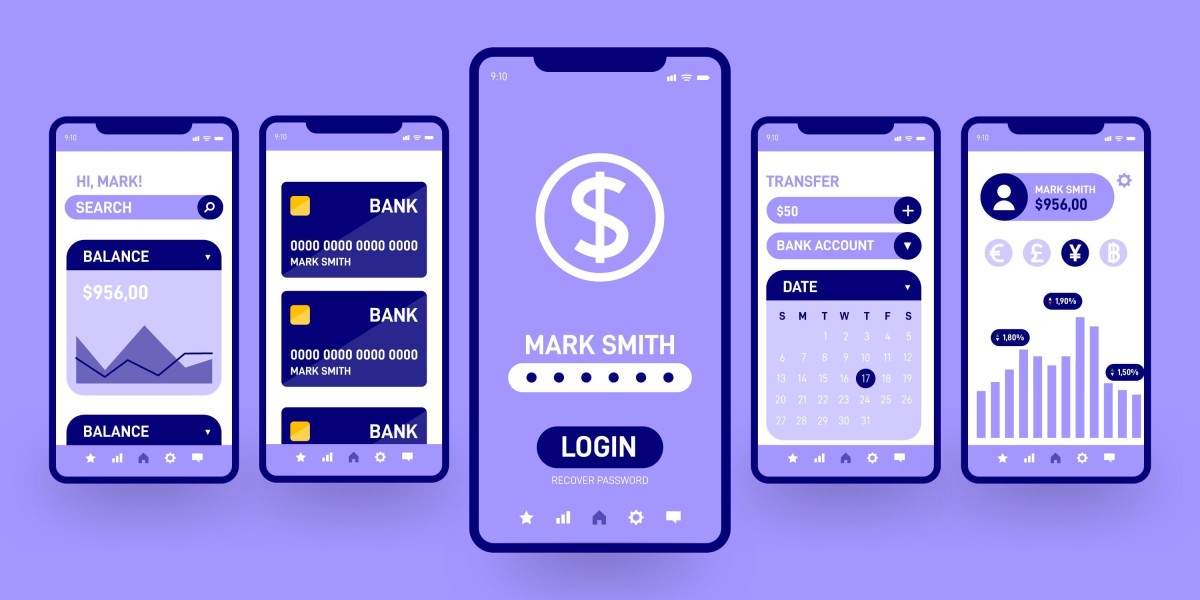In the ever-evolving landscape of finance, the integration of Financial Technology (Fintech) apps has emerged as a transformative force. This extensive guide navigates the world of Fintech Apps, spotlighting the best apps that are reshaping how individuals manage, invest, and interact with their finances.
1. Introduction: The Fintech Revolution
The Fintech revolution has brought about a paradigm shift in the traditional financial landscape. As individuals increasingly seek seamless, efficient, and innovative solutions for their financial needs, Fintech apps have risen to the occasion. From banking and investing to budgeting and payment solutions, these apps offer a holistic approach to managing finances.
2. Best Fintech Apps for Banking: N26
N26 stands out as a trailblazer in the world of digital banking. With its user-friendly interface and emphasis on transparency, N26 offers features like real-time transaction tracking, budgeting tools, and the ability to save and invest seamlessly. Its borderless banking approach appeals to a global audience, making it a top choice for those seeking a modern banking experience.
3. Investing Made Easy: Robinhood
For individuals venturing into the world of investing, Robinhood simplifies the process with its user-friendly platform. The app allows users to buy and sell stocks, ETFs, options, and even cryptocurrencies with zero commission fees. Robinhood's intuitive design and accessible approach have made it a popular choice, especially among younger investors.
4. Personal Finance Mastery: Mint
Mint has long been a staple in the realm of personal finance apps. Acquired by Intuit, Mint offers a comprehensive suite of tools for budgeting, expense tracking, and goal setting. Its ability to sync with various financial accounts provides users with a centralized view of their financial health, making informed decisions easier.
5. Cryptocurrency Management: Coinbase
As cryptocurrencies gain mainstream acceptance, managing digital assets becomes crucial. Coinbase facilitates the buying, selling, and storing of a variety of cryptocurrencies. Its user-friendly interface, security features, and educational resources make it a preferred platform for both beginners and experienced cryptocurrency enthusiasts.
6. Seamless Payment Solutions: PayPal
PayPal has transcended its origins as an online payment platform to become a comprehensive financial tool. With features like peer-to-peer payments, contactless transactions, and even cryptocurrency transactions, PayPal continues to innovate in the realm of digital payments.
7. Budgeting Reinvented: YNAB (You Need A Budget)
YNAB redefines budgeting by focusing on proactive financial planning. This app encourages users to allocate every dollar to a specific purpose, fostering financial discipline. With features like goal tracking and debt payoff assistance, YNAB empowers users to take control of their financial future.
8. Robo-Advisors: Wealthfront
For those looking for automated investment solutions, Wealthfront exemplifies the capabilities of robo-advisors. The app employs algorithms to create and manage diversified portfolios based on users' financial goals and risk tolerance. With features like tax-loss harvesting, Wealthfront optimizes investment strategies.
9. Peer-to-Peer Lending: Prosper
Prosper disrupts traditional lending models by connecting borrowers directly with individual lenders. This peer-to-peer lending platform facilitates personal loans with competitive interest rates. Prosper's approach provides an alternative financing avenue for individuals seeking loans or looking to invest in personal loans.
10. Financial Education: Acorns
Acorns combines micro-investing with financial education, making it an ideal app for those new to investing. The app rounds up everyday purchases to the nearest dollar and invests the spare change. Additionally, Acorns offers educational content to enhance users' financial literacy.
11. Digital Wallets: Apple Pay
The advent of digital wallets has transformed how individuals make transactions. Apple Pay stands out with its seamless integration into Apple devices, allowing users to make secure and contactless payments. With features like Apple Card integration, Apple Pay offers a convenient and secure payment solution.
12. Business Finance Management: QuickBooks
For small businesses, QuickBooks simplifies financial management. The app enables users to track expenses, create invoices, and manage payroll seamlessly. With features like expense categorization and automatic transaction syncing, QuickBooks empowers business owners to maintain financial clarity.
Choosing the Right Fintech Apps: Considerations and Benefits
Selecting the right Fintech apps involves considering factors such as financial goals, risk tolerance, and the desired level of automation. The benefits, however, are substantial:
Efficiency and Accessibility:
Fintech apps streamline financial processes, providing users with efficient tools for banking, investing, and budgeting. With features like real-time tracking and instant transactions, these apps enhance accessibility.
Cost Savings:
Many Fintech apps operate with low or no fees, making them cost-effective alternatives to traditional financial services. Features like commission-free trading and reduced transaction fees contribute to overall cost savings.
Financial Education:
Several Fintech apps prioritize financial education, offering resources, articles, and tools to enhance users' understanding of personal finance and investing. This commitment to education empowers users to make informed decisions.
Automation and Simplification:
Fintech apps automate various financial tasks, simplifying processes like budgeting, investing, and even tax planning. Automation contributes to better financial organization and reduces the burden of manual tasks.
Diversification and Customization:
Investment-focused Fintech apps often provide diversified portfolios and customization options based on users' preferences and risk tolerance. This allows users to tailor their investment strategies to align with their financial goals.
Conclusion: Navigating the Fintech Landscape
The Fintech revolution has ushered in a new era of financial empowerment, where individuals have unprecedented access to tools and resources that were once exclusive to traditional financial institutions. From banking and investing to budgeting and payment solutions, the best Fintech apps cater to diverse financial needs. As users navigate this landscape, the key lies in understanding personal financial goals, embracing innovation, and leveraging the power of these apps to transform the way they engage with their finances. In a world where digitalization is reshaping industries, the best Fintech apps stand as beacons of financial inclusion, efficiency, and empowerment.
Lastly, if you are an owner of an app and want to list it at the top of our website, you can visit Mobileappdaily.







